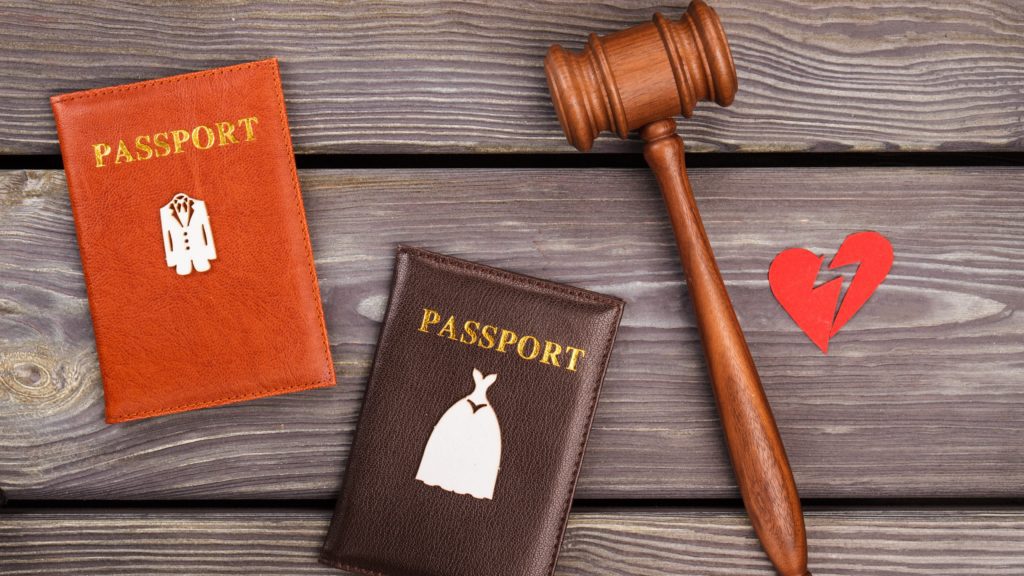This is a very common but important question for international families as it can impact, amongst other things, a person’s ability to remarry, their inheritance rights or potential tax liabilities.
How the English Court’s approach this question
The approach to recognition of an overseas divorce depends on where and when the divorce was obtained.
A divorce obtained by any civil court within the United Kingdom will be recognised in England and Wales.
A divorce granted within the European Union whilst the UK was still a member of the EU is entitled to automatic recognition in England.
If the divorce was obtained outside the EU or after the UK left the EU, the position is more complicated.
If the divorce was granted in a country which is a signatory to the 1970 Hague Divorce Recognition Convention it will be entitled to recognition. Approximately half of the EU Member States are signatories to this Convention, although there are some prominent countries who have not signed up.
The recognition of a divorce which is not covered above will be governed by The Family Law Act 1986 which is the focus of this article.
Was the divorce obtained by means of proceedings?
The first question is whether the foreign divorce was obtained by way of proceedings. The legislation makes a clear distinction between foreign divorces obtained by means of proceedings and foreign divorces obtained by means other than proceedings. Unfortunately, although the legislation confirms that it covers judicial and extra-judicial proceedings, it does not define ‘proceedings’ any further.
If the answer is Yes it was obtained by means of proceedings
The Courts in England and Wales will recognise the foreign divorce if the foreign divorce was:
- effective under the law of the country in which it was obtained;
- at the date on which the recognition is sought, either of the parties to the marriage were habitually resident, domiciled or a national of the country in which the foreign order was obtained; and
- it is also important that the divorce proceedings were started and finished in the same jurisdiction.
If the answer is No, it was not obtained by means of proceedings
The Courts in England and Wales will recognise the foreign divorce if the foreign divorce was:
- effective under the law of the country in which it was obtained;
- at the date on which the recognition is sought each party to the marriage was domiciled in that country, or either party to the marriage was domiciled in that country and the other party was domiciled in a country under whose law the divorce is recognised as valid; and
- neither party was habitually resident in the UK throughout the period of one year immediately preceding that date.
The recognition of a foreign divorce obtained by means other than proceedings is more restrictive than those obtained by means of proceedings.
Refusal of recognition
The Courts can refuse to recognise the foreign divorce if:
- the foreign divorce is incompatible with a decision already in existence determining the substance or validity of the marriage;
- where there was no subsisting marriage in respect of which a divorce or legal separation could be granted;
- where insufficient notice or no notice of the proceedings in which the divorce was obtained was given to a party;
- a party had no opportunity to participate in the proceedings and recognition would be contrary to public policy; or
- where the divorce was obtained other than by proceedings, there is no official document certifying the divorce and recognition would be contrary to public policy.
These factors should be borne in mind if you are seeking your foreign divorce to be recognised in England and Wales.
Where can I divorce?
It is worth noting that if you married abroad, you do not usually have to obtain a divorce in the country where you married.
For example, even if you married abroad, provided you have some connection to England or Wales by either one party being domiciled or resident in England and Wales, you might be able to divorce in England and Wales. It is recommended that a specialist Family law solicitor based in England and Wales is consulted before divorce proceedings are issued here.
A recent reported case on the issue of foreign divorce recognition
Mahtani v Mahtani [2023] 2988 (Fam)
The recent case of Mahtani v Mahtani [2023] EWHC 2988 (Fam) is interesting on the issue of recognition of a foreign divorce in England and Wales. Ms. Mahtani applied for an order that the Court should refuse to recognise the divorce obtained by the respondent, Mr. Mahtani, in Indonesia. Mr. Mahtani had proceeded, without any notice to Ms. Mahtani, to obtain the equivalent of a financial remedies order in Indonesia severely limiting Ms. Mahtani’s claims. The application was candidly made by Ms. Mahtani in order for her English divorce and financial proceedings against Mr. Mahtani to proceed in the English Court. It is worth noting that Mr. Mahtani had not participated in any of the English proceedings.
Ms. Mahtani’s case was that the Indonesian divorce pronounced on 14 November 2017 was procured by Mr. Mahtani dishonestly representing that he did not know about her whereabouts when they had in fact been in recent communication. Ms. Mahtani also asserted that she first found out about the divorce in May 2018 via family and friends. The Court in Jakarta also decided that jurisdiction was satisfied on the basis of Ms. Mahtani having last known residence in South Jakarta and this was incorrect; and that Ms. Mahtani had been properly and legally summoned, but Ms. Mahtani asserted that this was also incorrect as she had not received any summons or notices of the hearings.
The arguments for and against recognition were considered by Mr. James Ewins, sitting as a High Court Deputy Judge. He concluded that Mr. Mahtani had deliberately misled the Court in Jakarta and presented a false case. He exercised discretion and refused recognition of the Indonesian divorce. He adopted the words of Mostyn J in Liaw v Lee [2016] 1 FLR 533 “…there is the compelling argument that to decline to refuse recognition in this case would be grossly unjust and would in effect reward dishonesty and sharp practice. It would send out. It would send out a signal that conduct such as I have described is tolerable…’ The marriage between the parties therefore subsisted under English law and Ms. Mahtani’s divorce and financial remedy proceedings were to proceed.
A separate question of financial remedy following divorce
A separate question arises if you have obtained a divorce overseas and a financial order that does not meet your needs has been made, or if no financial order was made at all. In this situation, you may be able to apply to the English Court for a financial order under Part III of The Matrimonial and Family Proceedings Act 1984. There are various criteria that need to be met in order to make such an application.
Firstly, you will need to satisfy the marriage criteria. You must have a valid marriage and that marriage must be recognised in English law; the marriage must have been dissolved so that you are divorced, and that divorce must be recognised under English law; and you must not have remarried. If the marriage criteria are satisfied, you will need to satisfy the jurisdiction criteria. This will be satisfied if you are domiciled in England and Wales; habitually resident in England and Wales; or if you have an interest in a property in England and Wales that was at some point used as a matrimonial home. If the jurisdiction criteria are satisfied, permission from the Court needs to be obtained to make the application. If permission is obtained, the Court will deal with the substantive application.
The Court will consider all the circumstances of the case when determining whether to make an order and in what terms. The Court has the broad jurisdiction to make numerous financial orders. The purpose of this legislation is not to provide recourse for a discontented divorcee but is designed to provide fairness for those who have received deficient financial provision after a foreign divorce if they have sufficient connection to England and Wales.
The recent article here from my colleague, Michael Allum, considers the much-awaited recent judgment of the Supreme Court in the Part III case Potanin v Potanina [2024] UKSC 3.
If you have any questions regarding the recognition of your foreign divorce in England and Wales or regarding financial provision after a foreign divorce do get in touch with us at The International Family Law Group LLP.
Annie Boxer
[email protected]
The International Family Law Group LLP
www.iflg.uk.com
© February 2024
- Annie Boxerhttps://iflg.uk.com/team/annie-boxer
- Annie Boxerhttps://iflg.uk.com/team/annie-boxer
- Annie Boxerhttps://iflg.uk.com/team/annie-boxer
- Annie Boxerhttps://iflg.uk.com/team/annie-boxer











